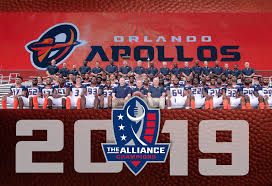
Pittsburgh Steelers
This connection to the city fosters a sense of pride among players and fans alike. Many players have embraced the city’s culture, often engaging in community service and outreach programs to give back. The Steelers’ commitment to social responsibility further strengthens the bond between the team and its supporters, reinforcing the idea that football is not just a game, but a vehicle for positive change Socolive TV.
Glory Days The Pittsburgh Steelers Super Bowl Success
The Pittsburgh Steelers have a storied history of success in the postseason, cementing their legacy as one of the most dominant franchises in NFL history. Their ability to perform under pressure has led to numerous memorable moments that resonate with fans.
The Dominance of the ’70s
The 1970s stand out as a golden era for the Pittsburgh Steelers. Led by Hall of Fame quarterback Terry Bradshaw, the team found success through a combination of high-powered offense and a formidable defense dubbed the “Steel Curtain.”
The 1974 NFL Draft proved pivotal for the team’s future. By selecting key players like Lynn Swann and Franco Harris, the Steelers built a roster capable of competing at the highest level. The integration of these talented players transformed the team into a force to be reckoned with, culminating in four Super Bowl victories during the decade.
Bradshaw’s leadership on the field was complemented by an unyielding defense that struck fear into opponents. “Mean” Joe Greene and Jack Lambert became household names, renowned for their tenacity and skill. The Steelers’ ability to adapt and evolve their strategies allowed them to dominate during this era, leading to back-to-back championships and establishing a dynasty.
The 2000s Resurgence
After experiencing a decline in the late 1980s and early 1990s, the Pittsburgh Steelers once again rose to prominence in the early 2000s. Under head coach Bill Cowher, the team regained its identity and implemented a new wave of talent, including quarterbacks Ben Roethlisberger and running back Jerome Bettis.
Roethlisberger’s arrival in 2004 signaled a new era for the franchise. His poise in the pocket and ability to make clutch plays revitalized the Steelers’ offense. The 2005 season saw the Steelers achieve a remarkable playoff run, culminating in a thrilling victory over the Seattle Seahawks in Super Bowl XL.
This championship win not only solidified Roethlisberger’s status as a top-tier quarterback but also brought the team full circle, reclaiming its identity as a contender on the grand stage. The Steelers’ ability to adapt to changing times while remaining true to their roots is a testament to the organization’s resilience.
Continuation of Excellence
In recent years, the Pittsburgh Steelers have continued to maintain a competitive edge within the league. With each season brings hope and excitement as fans anticipate another potential Super Bowl run. The tenacity instilled in the organization is evident through the dedication of players and coaches who embrace the team’s storied legacy.
Leadership from figures like Mike Tomlin, who took over as head coach in 2007, has been instrumental in maintaining the Steelers’ culture of excellence. Tomlin’s ability to connect with players and foster a winning mentality ensures that the team remains focused on achieving greatness.





